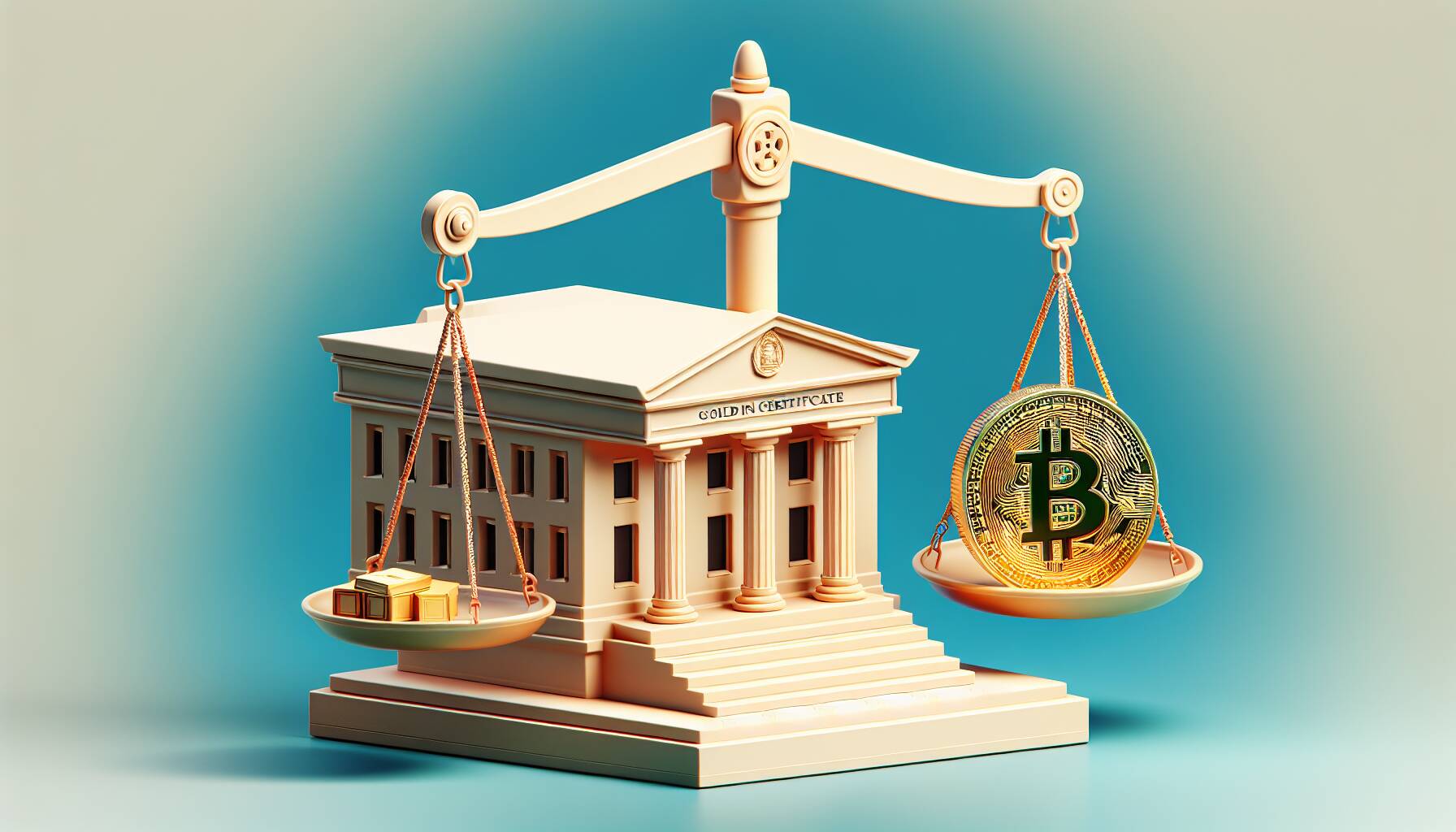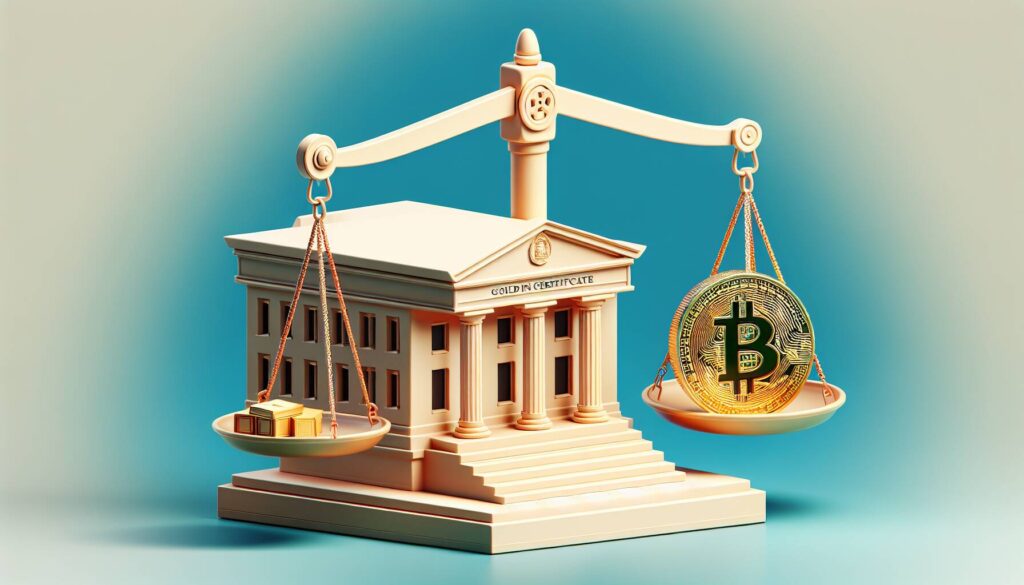In a surprising turn of events within the cryptocurrency landscape, Bo Hines, a prominent figure associated with the Trump administration, has put forth an intriguing proposal: the U.S. government could leverage gains from gold certificates to fund purchases of Bitcoin. This proposal comes as part of a broader consideration of a potential gold revaluation, which could generate the necessary capital to invest in Bitcoin, a digital asset that continues to gain traction among institutional investors.
The notion of a gold-to-Bitcoin reserve swap has sparked significant discussion, with various crypto news outlets like Cointelegraph and CryptoSlate reporting on the implications of such an initiative. The idea suggests that the United States might not only look at its existing gold reserves, some of which are stored in Fort Knox, as a possible source of funding for Bitcoin purchases, but also signals a shift in the administration’s approach to cryptocurrency as a whole.
“This proposal could mark a pivotal moment for both gold and Bitcoin,” stated Hines, hinting at possible changes in how the government views digital currency as part of a broader financial strategy.
Moreover, with a noted focus on Bitcoin mining and its potential economic benefits, the administration appears to be exploring innovative pathways to integrate cryptocurrency into traditional fiscal policies. Reports from outlets like CoinGeek and Crypto Briefing emphasize that this evolution reflects a growing acceptance of cryptocurrency at high levels of government, challenging conventional financial paradigms.
As the conversation continues, it remains clear that the intersection of traditional assets like gold and modern digital currencies like Bitcoin presents a fascinating development in the financial sector, one that could reshape investments and reserve strategies for years to come.

Government Strategies in Cryptocurrency and Gold
This article discusses recent developments involving the U.S. government’s potential strategies of utilizing gold reserves to invest in Bitcoin, which may influence the cryptocurrency market and investment landscape. Below are the key points to consider:
- Gold Certificate Gains: The government could realize profits on gold certificates to fund Bitcoin investments, indicating a shift in asset allocation strategy.
- Revaluation of Gold: The Trump administration is exploring revaluing gold to purchase Bitcoin, which could lead to significant changes in how the government interacts with cryptocurrencies.
- Focus on Bitcoin Mining: There is a noticeable shift towards Bitcoin mining, suggesting an increased governmental interest in harnessing energy resources to benefit from cryptocurrency production.
- Gold-to-Bitcoin Reserve Swap: Trump’s top crypto advisor is considering a budget-neutral approach to swap gold reserves for Bitcoin, highlighting a potential alternative for state funding.
- Fort Knox Gold Sales: The possibility of the U.S. government selling gold from Fort Knox to buy Bitcoin raises questions about national asset management and its impact on the economy.
This discussion reflects a significant pivot in financial strategy, which may affect the stability and future of both traditional and digital asset markets.
Gold Certificates and Bitcoin: A New Economic Frontier
The recent discussions surrounding the U.S. government’s potential to utilize gold certificates for Bitcoin purchases have sparked a lively debate across financial news outlets. This intersection of traditional asset management and cryptocurrency innovation raises important questions regarding the shifting dynamics of global finance. While several news agencies like Cointelegraph and CryptoSlate highlight the potential benefits of such a strategy, others, like TheStreet, dive into the implications of this bold move.
One of the primary advantages that this strategy presents is the ability for the government to diversify its reserves. By converting gold into Bitcoin, the U.S. could potentially tap into the volatility and rapid growth seen in the cryptocurrency market, allowing for greater liquidity and more dynamic portfolio management. Additionally, with a government-backed endorsement of Bitcoin, market confidence could see a substantial increase, attracting institutional investors who are currently hesitant about crypto’s regulatory landscape.
However, this transition comes with inherent risks. The high volatility associated with Bitcoin poses a financial threat if not managed carefully. Unlike gold, which has remained a stable store of value over decades, Bitcoin’s unpredictable price swings could lead to significant losses for government reserves. Moreover, shifting priorities from gold to crypto might alienate traditional investors who value the historical stability of precious metals.
This evolving narrative could particularly benefit forward-thinking investors in the crypto space, who stand to gain from a price surge fueled by increased demand. Conversely, it may create problems for traditional gold investors and mining companies, who could witness decreased interest in gold as a long-term investment. Additionally, as illustrated by Crypto Briefing, if the government pursues this reserve swap without thorough planning, the credibility of financial advisors who endorse this strategy could suffer should the market respond unfavorably.
















